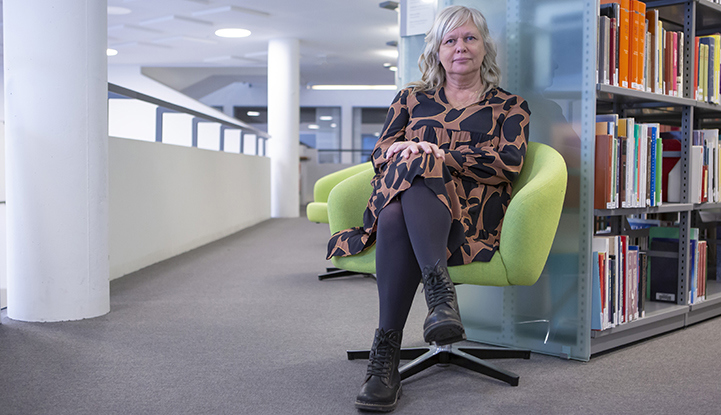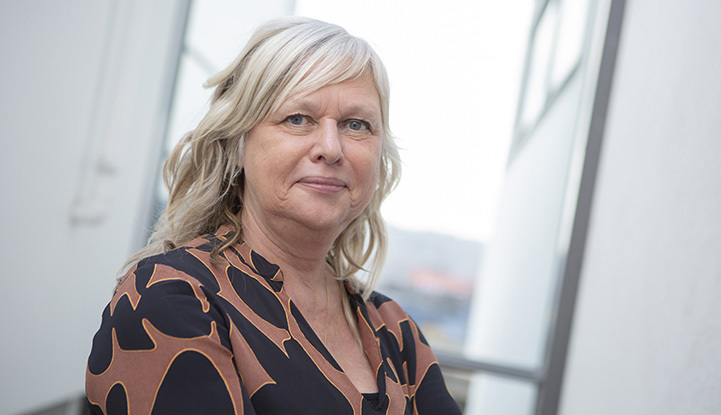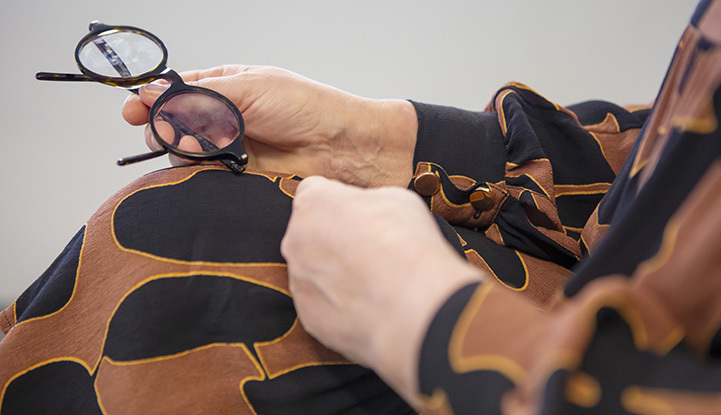New professor is sceptical of neuromyths
2020-02-17
Book I recommend: The last one I read is called Gun Love. I liked that very much.
Film tips: British social-realistic films
Music I love: Hurula, we're going to a concert at Cirkus in Stockholm.
My most-used app: In addition to social media, I mostly use Wordfeud and Band (the birdwatcher app).
Food I like: Hors d'oeuvres like dim sum, tapas, meze and actually hors d'oeuvres from all countries. I also like the Swedish dish Jansson's Temptation very much.
Makes me angry: Xenophobia and the big profits of private preschools.
Hidden talent: That I'm so good at determining the species of moths. And I'm a real swimmer. I usually count the number of times I swim. Last summer I swam 157 times. I'll swim everywhere and at any time.
Tips: Swim in cold water. Just swim a lot, really.
A headline in an interior design magazine: "Neurodesign – learn how to decorate so your brain feels better." That headline is an example of the current belief in society about how crucial brain structure is in our lives. This trend been seen in radio programmes, TV series and also, for example, in discussions of leadership. It’s called "neuroleadership," in which managers use knowledge of the brain to make employees happy and motivated.
And educational institutions are also hopping on the trend.
“‘Brain-smart’ schools are opening, or schools adopt the now so popular phenomenon of ‘brain breaks,’ small movement breaks that are based on pseudoscience," explains Anita Norlund.
She became a professor at the university at the end of last year after a ten-year research career. Over the course of these years, she has studied trends and beliefs and, on the basis of these, researched on social justice in schools.
“As researcher on the sociology of education I am, of course, sceptical of such a great focus on the importance of the brain in education.”
“Too much focus is placed on the individual and neurology and focus is removed from other problems, such as segregation.”
She notes that before the focus on the brain, entrepreneurial learning was the strong trend. This, as well, places too much focus on the individual.
"It's not as simple as saying that everyone can just ‘think like a winner.’ Or that everyone can show ‘grit,’ which means, roughly, that you have strength of character or a ‘backbone,’” she says.
Anita Norlund notes that there have always been these kinds of beliefs; some pass quickly while others endure. She has taken an interest in how they are spread from school authorities to teacher education programmes, educational publishers, trade unions and finally to policies at the municipal level and to classrooms. She has also researched the expressions that characterise the beliefs: for example, how school staff speak.
"I don't think schools should be shaped based on these beliefs. I am concerned that schools are becoming increasingly individualised when we do not take into account systemic errors or differences that are at the group level.”
Injustices fuelled research
At the end of the 1990s, Anita Norlund worked as a teacher of English and Swedish at a secondary school. And she had a strong thirst for knowledge. It made her take a continuing education course 100 kilometres from home.
"I remember once how I was driving through a terrible storm. It was thundering and snowing. But it didn't matter. I wanted to get there because it was so much fun.”
When it came time to write her paper, she decided that it would be so good that she would be admitted to the doctoral programme. And she became a doctoral student at the University of Gothenburg in 2003 part-time while continuing to work as a teacher.
Her doctoral thesis was about the conditions for critically reading non-fiction and how it differed between academic and vocational secondary programmes.
"It was more different than I would have thought. Those who studied in the vocational programmes did not receive the same opportunities to develop this skill and this permeated the images used in the educational materials and tasks as well as the writing subjects of national tests. When I saw how unfair it was, it drove my desire to research. I could contribute something that would make a difference for students and teachers," she says.
She remembers that she loved being a doctoral student. She experienced satisfaction in analysing and discovering things that cannot be seen with everyday eyes.
In parallel with her doctoral education, she had a lecturer position at the University of Borås and, after she completed her doctorate, a post doc position. She then studied how students behave when debating and how teachers approach teaching Swedish. Here, too, a specific educational belief was involved: that debates are best conducted in the form of pros versus cons. This idea has roots in antiquity so it is, to say the least, a timeless belief.
“Unfortunately, my studies showed that the form of teaching based on pros versus cons leads to overly dramatic and frivolous debates, which damages the intent of using debates as a democratic tool.
Anita Norlund has also studied conditions for newly-arrived students and for other groups, such as what happens when students who study Swedish as a second language and Swedish as first language are taught together. The results showed that teaching these students together helps to maintain Swedish as a second language teaching at a higher intellectual level than when the subject is taught separately.
As a researcher in the field, she has seen it as her task to engage in debate about the different trends and beliefs. Sometimes she does this via newspapers and in arenas such as the Swedish politicians' week in Almedalen.
"I see it as my role. But it can be difficult. Many people become frustrated because they have invested in these ideas. And I understand that they then react to what I say.”
New project takes a new approach
During the spring, she began a major research project funded by the Swedish Research Council in which the research group intends to "follow the money." They start by studying invoices from three municipalities with the aim of investigating the types of skills development teachers receive. After working on the invoices, they will go further.
Teachers are today awash in offers regarding skills development. At the same time, studies show that these offers are sometimes lacking when it comes to quality and relevance.
"We have a hypothesis that skills development is also affected by trends. It remains to be seen whether this will be confirmed or not," says Anita Norlund.
Professorship implies new tasks
Even as a post doc, she set her sights set on becoming an Associate Professor. And now she's achieved the highest title, that of Professor.
"The title is proof and a stamp of quality. It also gives me opportunities to support colleagues in the research group. I also work a great deal to strengthen our research environment and with our research project as well.”
"I will also start a Nordic network in which we will immerse ourselves in the theories of social justice from sociologist Basil Bernstein. And I will continue to critically review trends, for the sake of the students and the teachers," concludes Anita Norlund.
Anita Norlund will be installed as professor at the Academic Ceremony on 17 April.
Read more
Anita Norlund’s Researcher Profile
Text: Anna Kjellsson
Photo: Suss Wilén
Translation: Eva Medin




